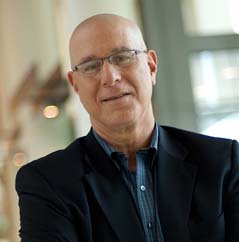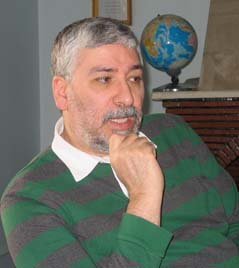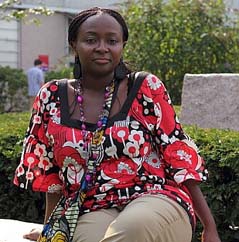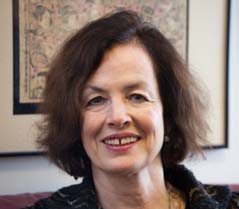Samuels Receives Order of the Rising Sun, Gold and Silver Star
On November 3, 2011, the Japanese government announced that the Order of the Rising Sun, Gold and Silver Star, will be conferred upon MIT Political Scientist Richard J. Samuels, in recognition of his significant contributions to scholarship about Japan and for promoting friendly relations between Japan and the United States.

Richard Samuels
Samuels received the decoration from Prime Minister Noda on November 7, and was presented to the Emperor of Japan at the Imperial Palace.
In congratulating Professor Samuels on the honor, Dean Deborah Fitzgerald noted his strong personal and scholarly ties with Japan, and the enormous contributions he has made to shared public knowledge
Samuels, the Ford International Professor of Political Science and director of the MIT Center for International Studies, is the founding director of the MIT Japan Program, which he created in 1981. The MIT Japan Program has contributed greatly to promoting the understanding of Japanese culture, economy and industry.
Samuels is an expert in Japanese politics and East Asian security affairs. Through his research activities and through teaching the next generations of researchers, he has promoted a better understanding of Japan in the United States. His book, The Business of the Japanese State—Energy Markets in Comparative and Historical Perspective, received the Masayoshi Ohira Memorial Prize in 1988. Rich Nation, Strong Army: National Security and the Technological Transformation of Japan won the John Whitney Hall Book Award of the Association of Asian Studies and the Hiromi Arisawa Prize of the Association of American University Presses in 1996.
Machiavelli's Children: Leaders and their Legacies in Italy and Japan received the the Marraro Prize from the Society for Italian Historical Studies in 2003 and the Jervis-Schroeder Prize for International and Historical Studies from the American Political Science Association in 2004. He is one of only three scholars (Japanese or foreign) to have produced more than one scholarly monograph recognized by the Nippon Foundation as one of the top “one hundred books for understanding contemporary Japan.”
His most recent book, Securing Japan: Tokyo’s Grand Strategy and the Future of East Asia, was a finalist for the Lionel Gelber Prize for the best book in international affairs.
From 2001-2007, Samuels was chairman of the US panel of the US-Japan Conference on Cultural and Educational Interchange (CULCON). In this capacity, he exercised leadership in promoting various activities of the conference by utilizing his profound experience and knowledge as a Japan scholar. CULCON is a bi-national advisory panel that serves to elevate and strengthen the vital cultural and educational foundations of the U.-Japan relationship, and to strengthen connections between US and Japan leaders in many different fields.
As chairman of the Japan-US Friendship Commission (JUSFC) from 2001-2008, Samuels contributed to the furthering of mutual understanding and cultural exchange between the U.S. and Japan. JUSFC is an independent federal agency that offers grant programs to institutions in order to support the training of Americans to help them better meet the challenges and opportunities in the US-Japan relationship.
Abbas Maleki Joins CIS

Abbas Maleki
Abbas Maleki, Iran's Deputy Foreign Minister (1988-1997), joined CIS as a Robert E. Wilhelm Fellow for the 2011-2012 academic year.
Maleki is associate professor of political science at Sharif University of Technology in Tehran, director of the International Institute for Caspian Studies, and a senior associate of the Belfer Center's International Security Program at Harvard University. Maleki served as Director General of PetroPar Institute, a research arm of the National Iranian Oil Company, from 1998-2000.
"Abbas is a thoughtful man who will offer much to CIS and the greater MIT community. An engineer by training with particular interests in energy, he will be working with students and faculty on related concerns. We look forward to his time with us," said John Tirman, Executive Director and a Principal Research Scientist at MIT's Center for International Studies.
A generous gift from Robert E. Wilhelm supports the Center's Wilhelm fellowship. The fellowship is awarded to individuals who have held senior positions in public life and is open, for example, to heads of non-profit agencies, senior officials at the State Department or other government agencies, including ambassadors, or senior officials from the UN or other multilateral agencies.
Ugandan Journalist Receives Neuffer Fellowship

Jackee Budesta Batanda
Read Jackee's blog
Jackee Budesta Batanda—a Ugandan journalist who has reported on the vicious acid attacks of women as "revenge crimes" and the targeted murders of albinos—has been selected as the 2011-2012 Elizabeth Neuffer Fellow. The award is offered through the International Women's Media Foundation and is sponsored in part by CIS.
Amid a brutal crackdown on journalists covering anti-government protests, Ugandan President Yoweri Museveni has denounced local and international media outlets as "enemies." In this atmosphere, Batanda became determined to report and research "closing media spaces in African nations" during the fellowship when she studies at MIT Center for International Studies and other Boston-area universities. She will also spend time atThe New York Times and The Boston Globe.
"Press freedom in Uganda is under attack. Jackee wants to shine a spotlight on how the government is treating journalists," IWMF Executive Director Liza Gross said. "In the true spirit of Elizabeth Neuffer, Batanda's interest in covering crucial humanitarian issues in Africa offers inspiration for journalists everywhere. We hope this valuable opportunity will provide her with time to expand her reporting."
The fellowship was created in memory of Boston Globe correspondent Elizabeth Neuffer, an IWMF Courage in Journalism Award winner who was killed in Iraq in May 2003. The program, funded by Neuffer's family and supporters, aims to promote international understanding of human rights and social justice and create an opportunity for women journalists to build their skills.
Batanda, 31, a reporter for the Global Press Institute, plans to create a reporting skills workshop for Ugandan journalists after her seven-month fellowship. A gifted writer and photographer, Batanda holds a master's degree in forced migration studies from the University of the Witwatersrand in South Africa and an undergraduate degree in communications from Makerere University in Uganda. Batanda, a communications officer for the Refugee Law Project of Makerere University's law faculty, received Uganda's 2010 Young Achievers Award and a Justice in Africa program fellowship.
"Jackee Batanda's determination to work as a journalist under such reprehensible conditions is honorable. We are thrilled that she will be at CIS and hope that she finds her time here to be rewarding," said Richard Samuels, director of CIS and Ford International Professor of Political Science at MIT.
MIT Japan 3/11 Initiative

Pat Gercik
Contribute to MIT Japan 3/11
After this year's massive March 11 disaster in Japan's Tohoku region—an earthquake, a tsunami, and a nuclear plant failure—reconstruction and relocation efforts are moving ahead rapidly.
Joining in that effort is a group of MIT faculty from a cross-section of disciplines that has been stirred to action and is mobilizing its own response with the launch of the MIT Japan 3/11 Initiative, says Pat Gercik, associate director of the MIT International Science and Technology Initiatives program within the Center for International Studies. She is also the 3/11 Initiative's program coordinator and overseer of fundraising efforts.
The goal: Raise hundreds of thousands of dollars for a Memorial Community Center in the devastated town of Minami Sanriku, as well as for a multi-year, longer range effort to study and promote disaster-resilient planning, design, and reconstruction.
With educational and business ties to Japan that go back many decades, perhaps it was to be expected that such an initiative would emanate from the MIT community, specifically from the MIT Center for International Studies' MIT Japan Program, but with enthusiastic support from other departments and programs.



